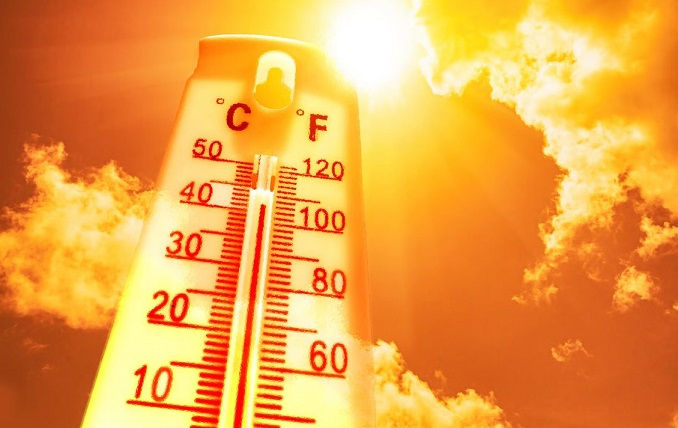New Study Reveals That COVID-19 Virus Has Greater Resistance to Temperature Shifts
Nikhil Prasad Fact checked by:Thailand Medical News Team Aug 26, 2025 5 months, 2 weeks, 5 days, 1 hour, 51 minutes ago
Medical News: How Scientists Measured the Virus with Cutting-Edge Technology
Researchers from the State Key Laboratory of High-Performance Ceramics and Superfine Microstructures at the Shanghai Institute of Ceramics, Chinese Academy of Sciences, together with experts from the University of Chinese Academy of Sciences in Beijing, the Nagoya Institute of Technology in Japan, and the School of Medicine at Tongji University in Shanghai, have carried out a remarkable study to better understand how coronaviruses respond to different temperatures.
 New Study Reveals That COVID-19 Virus Has Greater Resistance to Temperature Shifts
New Study Reveals That COVID-19 Virus Has Greater Resistance to Temperature Shifts
Using surface-enhanced Raman scattering (SERS) technology, the team was able to investigate how the spike proteins of SARS-CoV-2 (the virus responsible for COVID-19) and its predecessor SARS-CoV react under temperature changes. This
Medical News report highlights how their findings shed light on why SARS-CoV-2 has remained more resilient and widespread compared to earlier coronaviruses.
Why Temperature Matters in Viral Spread
Viruses are strongly affected by their surroundings. In earlier outbreaks, such as SARS in 2003, warmer weather seemed to play a role in weakening the virus, leading to a rapid decline in infections during the summer. However, SARS-CoV-2 has not followed this pattern. Instead, it continues to spread even in warmer climates, raising questions about its adaptability.
The researchers found that SARS-CoV-2 has a greater ability to tolerate heat compared to SARS-CoV. While the SARS virus quickly weakened at higher temperatures, the COVID-19 virus was able to maintain stability up to 60 °C before showing significant loss of activity. This higher resistance helps explain why the virus continues to circulate globally across different seasons and climates.
The Role of Advanced Detection Tools
To uncover these details, the scientists designed specialized gold nanoarray chips capable of amplifying the Raman signal of viral proteins. This technology allowed them to detect the SARS-CoV-2 spike protein at incredibly low concentrations—just 1 picogram per milliliter. By carefully heating and cooling the viral proteins on these chips, the team observed how the structural integrity of the spike protein changed with temperature.
Their experiments showed that while SARS-CoV proteins started to denature at around 50 °C, the SARS-CoV-2 spike protein held its shape until about 60 °C. This difference means the newer virus is less vulnerable to natural seasonal heat, contributing to its ongoing spread.
Implications for Public Health and Prevention
These findings offer important insight into why COVID-19 has persisted worldwide despite changes in weather and climate. Unlike SARS, which disappeared partly due to sensitivity to heat and humidity, SARS-CoV-2 can remain active under a wider range of conditions.
For public health officials, this knowledge underscores the impor
tance of maintaining preventive measures regardless of season. It also opens doors to using SERS technology as a fast and sensitive tool for studying how other dangerous viruses might behave in different environments, helping to prepare for future outbreaks.
A Deeper Look into Viral Behavior
The researchers also tested pseudoviruses carrying the spike and nucleocapsid proteins of SARS-CoV-2. They discovered that the spike protein, in particular, provided greater resilience at higher temperatures compared to other viral components. This highlights the crucial role of the spike protein not only in infection but also in environmental survival.
Final Thoughts
This groundbreaking research shows that SARS-CoV-2 has a stronger ability to withstand environmental temperature changes compared to earlier coronaviruses. That resilience explains its global persistence and seasonal recurrence. While the virus can still be inactivated under very high heat, its ability to tolerate temperatures up to 60 °C makes it more adaptable and harder to eliminate naturally. Understanding these traits is vital in planning epidemic control strategies, improving sterilization approaches, and preparing for future viral threats.
The study findings were published in the peer reviewed journal: Biosensors.
https://www.mdpi.com/2079-6374/15/9/558
For the latest COVID-19 News, keep on logging to Thailand
Medical News.
Read Also:
https://www.thailandmedical.news/news/sars-cov-2-is-mutating-to-replicate-better-at-lower-temperatures-found-in-the-human-upper-respiratory-tract
https://www.thailandmedical.news/news/breaking-italian-and-american-study-claims-that-sars-cov-2-has-evolved-to-withstand-higher-temperatures
https://www.thailandmedical.news/news/most-unaware-that-junk-viral-peptides-produced-during-replication-are-pathogenic-and-can-withstand-temperatures-above-70-degrees-celsius
